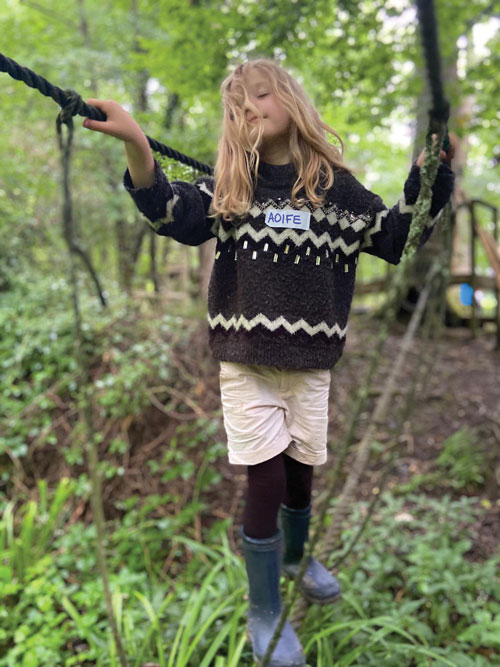
by Melanie Parr
Managing Director, Lymley Wood CIC
“My child has made a friend for the first time when he came to your Forest School, we are now planning a play date.”
Being a parent to a neurodiverse child can be a challenge and a struggle but also full of such joy. All parents want their children to make friends, have fun, learn and be able to explore new environments safely while knowing they will be respected and their individual needs will be accommodated and embraced.
Autism is not ‘one size fits all’ and every child with ASC (Autistic Spectrum Condition) has different presentations to others, but one thing we have found at Lymley Wood CIC is that being outside in a natural space provides children with ASC the chance to enjoy experiences just like other children do.
There isn’t currently a great deal of research into autism and nature activities but there is a growing body of evidence to prove a link between increased wellbeing, higher achievement and access to nature. There are many individual stories illustrating the positive influence which Forest School has had on autistic participants.
“This is the first holiday club my child has attended where I haven’t been called to take him home due to his behaviour.” One of our parents with a child aged eight with ASC.
Finding a provision that has a person-centred approach is essential for autistic children and with an autism-aware practitioner, ASD children have an opportunity to thrive. As well as physical activity benefits, outdoor sessions can help with motor skills, speech and language and aid emotional regulation.
So what can time spent in a natural space such as a Forest School offer:
1. A person-centred approach doesn’t only take into account any differences or difficulties someone may have, it looks at all children as unique individuals. Sit spots and favourite places for children to go to if they feel overwhelmed are easy in the woods.
2. Curiosity led play – special interests are welcome in the woods and are a great way to engage children.
3. Space to be safely sensorily stimulated – stimming, rocking, feeling the senses of nature all around is all OK in a natural space. Jumping in play nets or lying wrapped up in a blanket looking up through the trees allows for senses to be explored.
4. Encouraging an interest in nature – maybe our next Chris Packham, who openly talks about his own challenges with ASC and how nature has benefited him.
5. A chance to make new friends and connections with children and adults.
6. Physical and mental health benefits of being outdoors, leading to calmer children and a chance to overcome some triggers and decreasing sensitivities like windy weather.
“I loved everything but the mud was the best” boy aged 10.
Forest Schools are popping up all over Sussex as are holiday cubs in woodland spaces such as Lymley Wood near Crowborough (www.lymleywood.co.uk). They all offer a great place to trial a session for children with ASC or other SEND needs.
East Sussex Council also supports access to holiday clubs with funded places for SEND children as part of the HAF scheme, for further details see www.eastsussex.gov.uk/children-families/childcare/welcome-to-holiday-food-and-fun
Mel Parr runs Lymley Wood CIC based near Five Ashes, that has been challenging Nature Deficit Disorder in Children since 2019.
For upcoming events please visit www.eequ.org/experience/4795











